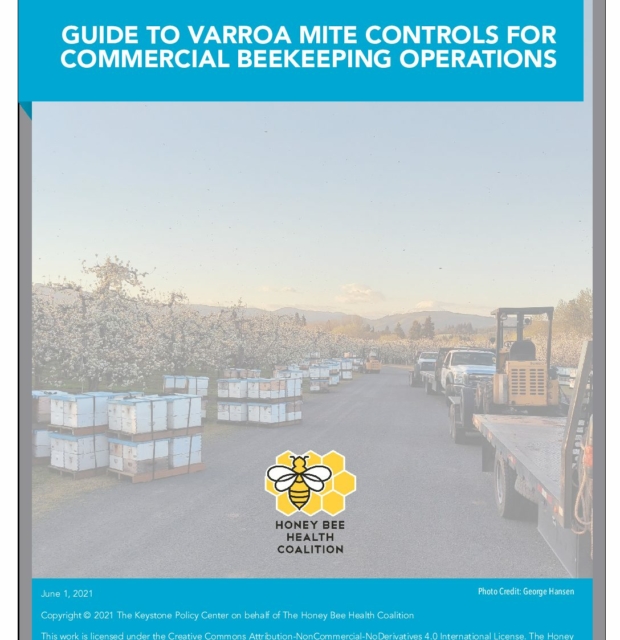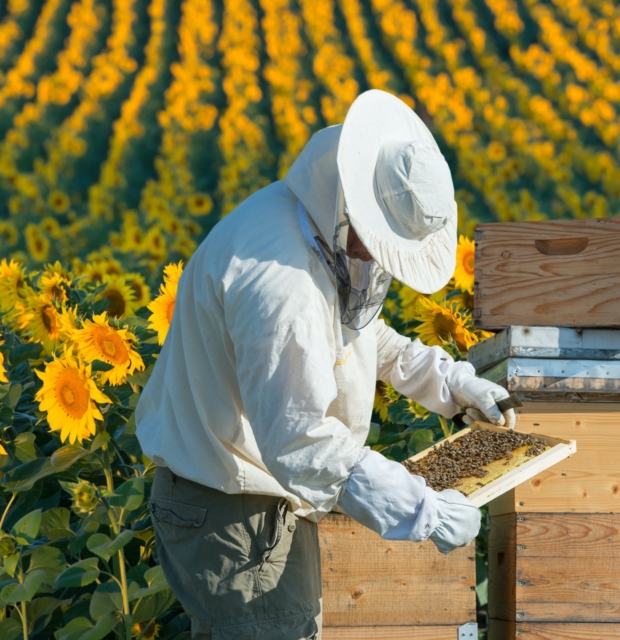News
Working Together to Support Honey Bee Health
Honey bees have been hard at work this summer pollinating crops and supporting healthy ecosystems. This essential work is why bees are at the center of our food production and way of life in North America.
The Honey Bee Health Coalition has been working equally hard to find new, innovative ways to support pollinator health and provide beekeepers, farmers, and others the resources they need to support honey bee health.
Over the past two months, the Coalition has been proud to unveil a series of important endeavors to ensure bees can continue to thrive in the context of production agriculture. These efforts include a competition aimed at finding and funding innovative ideas to improve honey bee forage and nutrition. They also include the launch of the Bee Integrated Demonstration Project, which embodies the ideas, vision, and approach of the Coalition.
Bee Integrated Demonstration Project
The Honey Bee Health Coalition has worked since its founding to bring together diverse stakeholders to find collaborative strategies to measurably improve honey bee and pollinator health. The Coalition has brought its vision for bee health to life in the fields of North Dakota.
The Coalition proudly launched the Bee Integrated Demonstration Project to show best practices in a real-world setting, gather data, and show beekeepers and farmers alike how to apply the lessons learned.
Beekeeper and farmer pairs are currently working to bridge the worlds of research and implementation through the Bee Integrated Demonstration Project. They are, for example, utilizing the practices outlined in the Coalition’s Tools for Varroa Management Guide. They also are planting pollinator forage with the help of the Bee & Butterfly Habitat Fund and implementing best practices from the North Dakota Pollinator Plan.
Learn more about the Bee Integrated Demonstration Project, its supporters and key partners, and what’s next for this exciting effort by visiting honeybeehealthcoalition.org/bee-integrated.
Nutrition Prize
Honey bees are facing increasing pressures on their diets due to a variety of factors. Addressing these challenges and finding better ways to fuel these industrious pollinators are both critical to improving honey bee health.
 The Coalition has worked to identify opportunities for future research into honey bee nutrition, supplements, and forage — including surveying beekeepers in late 2016 and early 2017 on the nutrition challenges their hives face and the use of nutrition supplements. The Coalition is building on this report by unleashing the creativity and innovative minds of experts in the bee and animal nutrition worlds.
The Coalition has worked to identify opportunities for future research into honey bee nutrition, supplements, and forage — including surveying beekeepers in late 2016 and early 2017 on the nutrition challenges their hives face and the use of nutrition supplements. The Coalition is building on this report by unleashing the creativity and innovative minds of experts in the bee and animal nutrition worlds.
The Coalition recently launched the Bee Nutrition Challenge: An Innovation Award to identify and support creative, practical solutions to accelerate and pioneer the field of honey bee nutrition.
Please help the Coalition spread the word about this exciting competition — which will award $40,000 in prize money to up to four projects.
The competition application, the timeline for the awards process, and additional information can be found at honeybeehealthcoalition.org/nutrition-challenge.
Mite-A-Thon
Varroa mites pose significant challenges for beekeepers around the world. A single infestation can quickly spread to nearby hives and devastate an entire region’s honey bee population.
The Coalition has spearheaded efforts to equip beekeepers with the information, resources, and best practices they need to detect, monitor, and manage these destructive mites.
The Coalition is now proud to join the Pollinator Partnership and others to support the first ever Mite-A-Thon, which launches in September to collect mite infestation data and to visualize Varroa infestations in honey bee colonies across North America.
Visit www.pollinator.org/miteathon to learn more about how to participate in this important effort — which will take place from Sept. 9 to Sept. 16.
CAST Paper: Why Does Bee Health Matter?
The Coalition provided direct and in-kind support to the Council for Agricultural Science and Technology to produce a paper summarizing the latest science related to declines in bee health.
The paper, released in June 2017, discusses methods used to document colony losses, recommendations for research, and suggestions for beekeepers, land managers, crop producers, homeowners, and policymakers to help restore healthy populations of honey bees and other pollinators.

![]() The North American Pollinator Protection Campaign’s Farmer Rancher Pollinator Conservation Award recognizes the unique contributions that members of the agricultural community make to pollinators where they are needed most — supporting our food supply.
The North American Pollinator Protection Campaign’s Farmer Rancher Pollinator Conservation Award recognizes the unique contributions that members of the agricultural community make to pollinators where they are needed most — supporting our food supply.
Nominations are due Friday, August 31, 2017. Visit pollinator.org/awards

